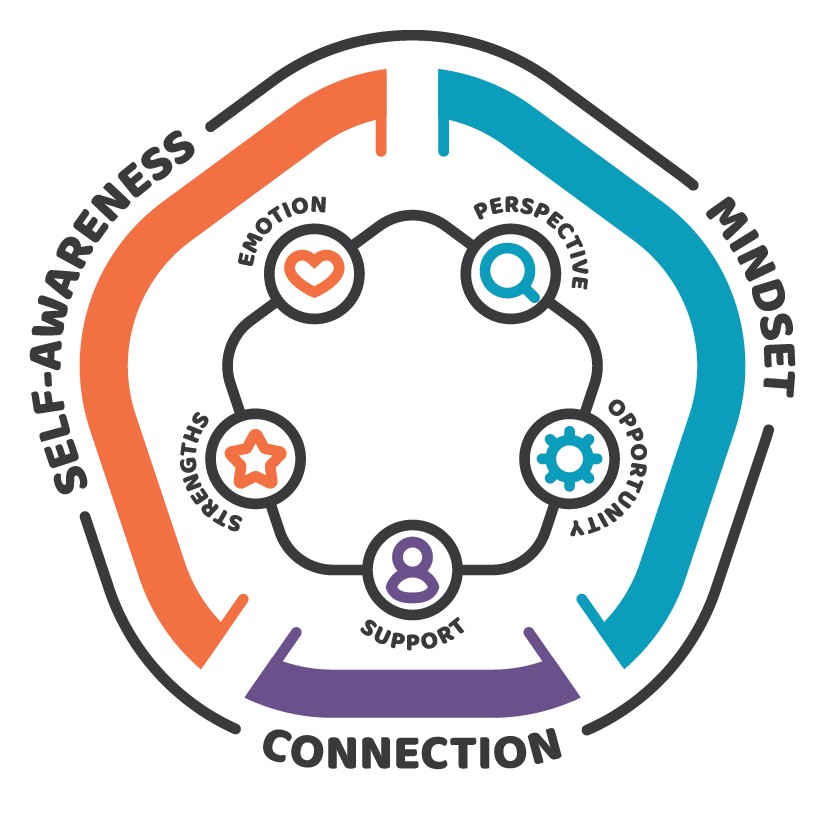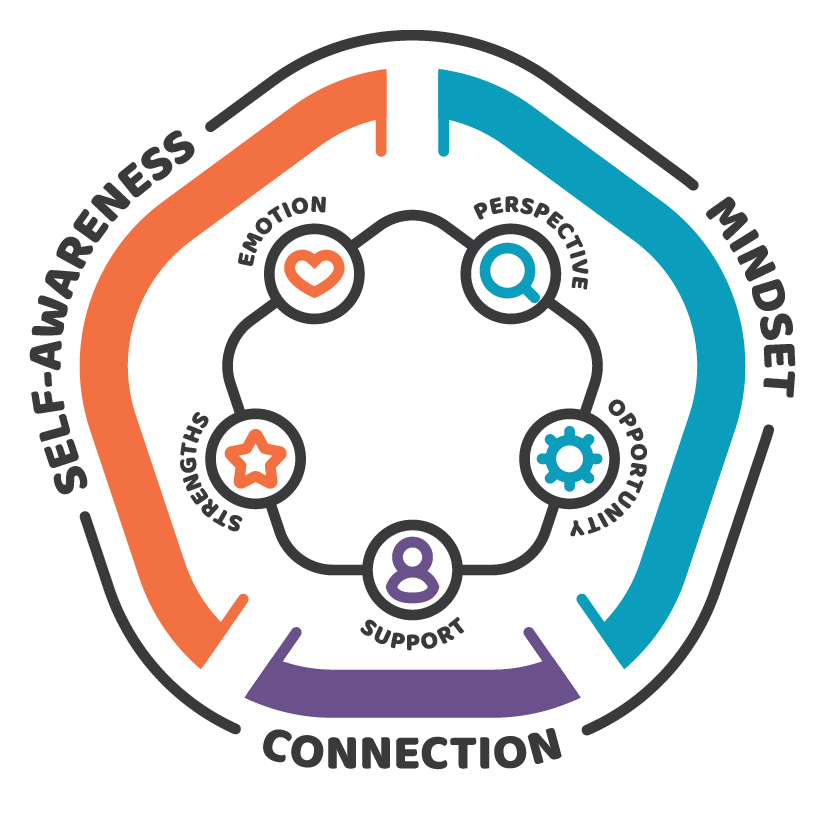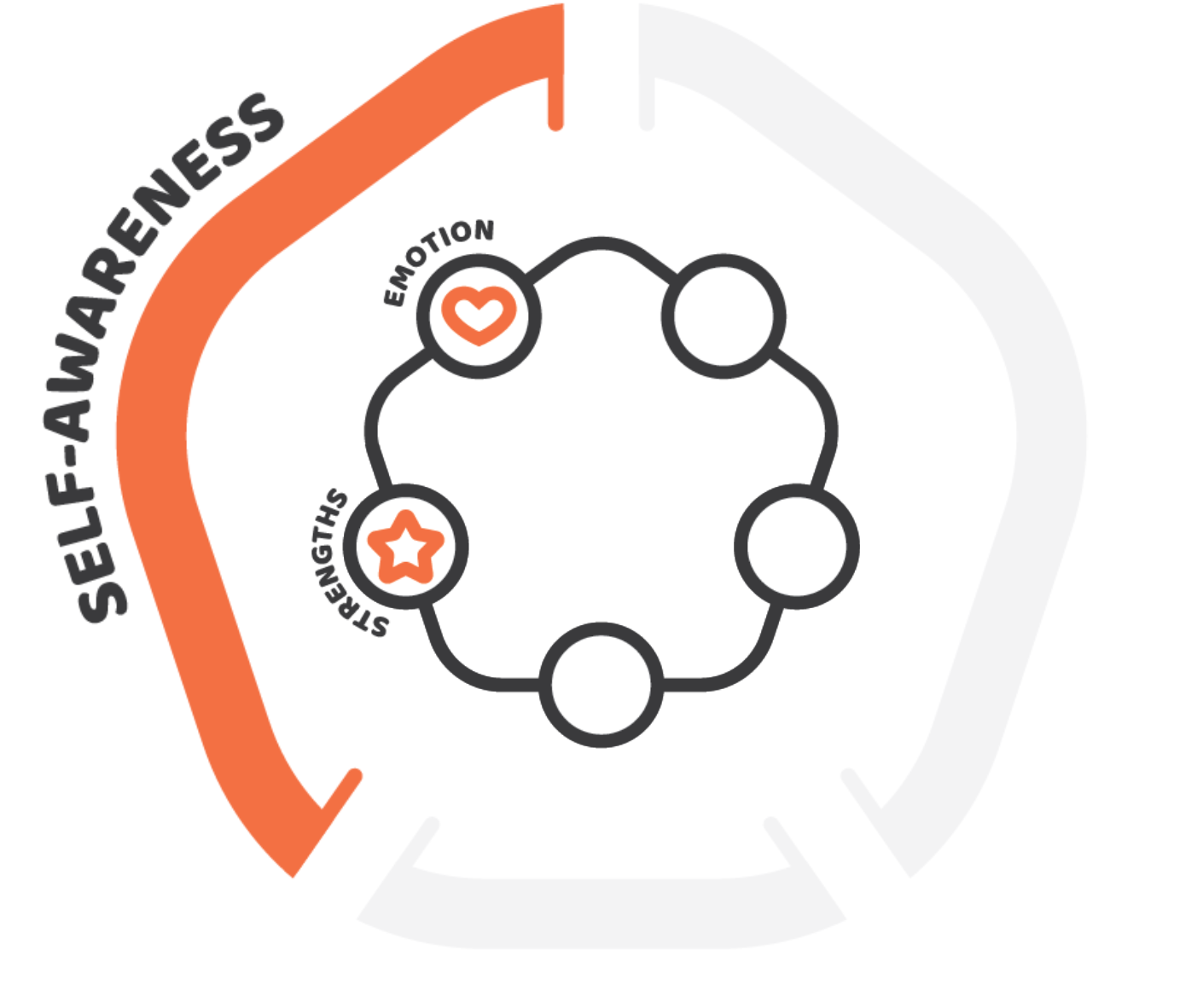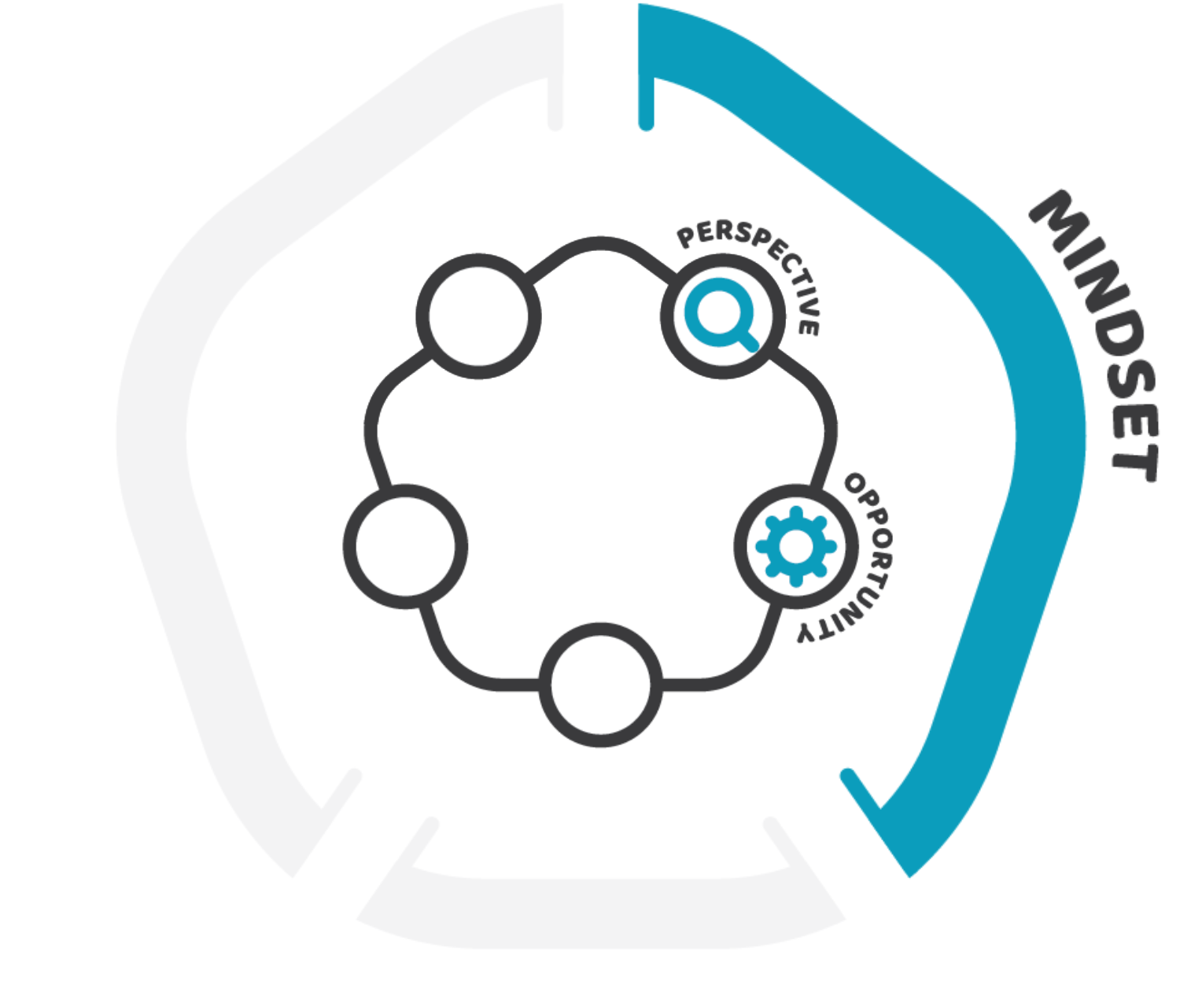Resilient Leadership

The Appleton Greene Corporate Training Program (CTP) for Resilient Leadership is provided by Dr. Massie Certified Learning Provider (CLP). Program Specifications: Monthly cost USD$2,500.00; Monthly Workshops 6 hours; Monthly Support 4 hours; Program Duration 12 months; Program orders subject to ongoing availability.

Personal Profile
Dr. Massie is a Certified Learning Provider (CLP) at Appleton Greene. She is also the founder and CEO of a consulting firm and a nonprofit organization.
With over two decades of experience in the talent development field, Dr. Massie has served in multiple senior leadership roles in HR and talent development, executing organizational talent strategies that have contributed to measurable growth in headcount and EBITA.
As an award-winning leadership development practitioner and ICF Certified Coach, Dr. Massie has co-authored several best-selling books on the topic of leadership coaching and change management. She is also a credentialed facilitator across many leadership and professional development programs, having worked with global leaders across various industries.
Dr. Massie specializes in leadership development, positive psychology, and resilience. Her expertise in these areas has earned her numerous accolades and awards, including recognition for her development programs and publications on the topics of leadership coaching and change management.
Dr. Massie’s experience has given her a unique perspective on the challenges and opportunities facing organizations in today’s fast-paced and rapidly changing business environment. Her clients have ranged from entry-level employees to C-suite executives, and she has worked with clients across the globe, including in the United States, Europe, and Asia.
Overall, Dr. Massie is committed to making a positive impact on the world around her by helping leaders and individuals reach their full potential. Through coaching, consulting, and thought leadership, she is dedicated to helping others achieve their goals and aspirations.
To request further information about Dr. Massie through Appleton Greene, please Click Here.
(CLP) Programs
Appleton Greene corporate training programs are all process-driven. They are used as vehicles to implement tangible business processes within clients’ organizations, together with training, support and facilitation during the use of these processes. Corporate training programs are therefore implemented over a sustainable period of time, that is to say, between 1 year (incorporating 12 monthly workshops), and 4 years (incorporating 48 monthly workshops). Your program information guide will specify how long each program takes to complete. Each monthly workshop takes 6 hours to implement and can be undertaken either on the client’s premises, an Appleton Greene serviced office, or online via the internet. This enables clients to implement each part of their business process, before moving onto the next stage of the program and enables employees to plan their study time around their current work commitments. The result is far greater program benefit, over a more sustainable period of time and a significantly improved return on investment.
Appleton Greene uses standard and bespoke corporate training programs as vessels to transfer business process improvement knowledge into the heart of our clients’ organizations. Each individual program focuses upon the implementation of a specific business process, which enables clients to easily quantify their return on investment. There are hundreds of established Appleton Greene corporate training products now available to clients within customer services, e-business, finance, globalization, human resources, information technology, legal, management, marketing and production. It does not matter whether a client’s employees are located within one office, or an unlimited number of international offices, we can still bring them together to learn and implement specific business processes collectively. Our approach to global localization enables us to provide clients with a truly international service with that all important personal touch. Appleton Greene corporate training programs can be provided virtually or locally and they are all unique in that they individually focus upon a specific business function. All (CLP) programs are implemented over a sustainable period of time, usually between 1-4 years, incorporating 12-48 monthly workshops and professional support is consistently provided during this time by qualified learning providers and where appropriate, by Accredited Consultants.
Executive summary
Resilient Leadership
Resilient Leadership
Resilient Leadership is a transformative journey guided by a facilitator who knows firsthand the challenges of leading national teams amidst organizational change and stress. As a leader responsible for talent development strategy, I witnessed the immense pressure and uncertainty that fellow leaders faced. It became clear to me that we were all searching for ways to navigate these turbulent times while remaining resilient.
Driven by a deep desire to support leaders in their quest for resilience, I embarked on a path of learning and growth. I pursued certification in positive psychology and resilience, immersing myself in research and collaborating with leaders across the globe. This invaluable experience allowed me to refine various proven models of resilience into a comprehensive framework that captures the essence of building resilience as a leader.
What sets the Resilient Leadership program apart is its practicality. It was important to me that the model we developed was not just theoretical, but one that could be immediately applied within the organizational context. This practicality empowers leaders to take action and build resilience right away, enabling them to navigate challenges with confidence and clarity.
My passion lies in helping individuals develop resilience within themselves and across their teams through their leadership. I have witnessed the transformative power of resilience firsthand, both in my own journey and in the lives of those I have worked with. It is my belief that by cultivating resilience, leaders can unlock their full potential and inspire their teams to reach new heights of success.
Resilient Leadership is not just about surviving; it’s about thriving in the face of adversity. It equips leaders with the tools and insights to cultivate resilience, foster a positive work culture, and create an environment where individuals can flourish. Through this program, leaders will develop a deep understanding of their own strengths and areas for growth, enhance their ability to adapt to change, and cultivate a supportive and resilient team.
Together, we will embark on a transformative journey that combines research-backed strategies, practical tools, and real-life experiences. With Resilient Leadership, you will develop the skills and mindset necessary to navigate challenges, inspire others, and create a lasting impact within your organization. Let us unlock your potential as a resilient leader and cultivate a culture of resilience and growth together.
Model:

Why resilient leadership is so important
In today’s rapidly changing business landscape, resilient leadership is more important than ever. Organizations face numerous challenges, including economic downturns, market volatility, and increased turnover, which can have detrimental effects on their performance and sustainability. It is during these times of adversity that resilient leaders shine and make a significant impact.
During economic downturns, businesses often experience financial constraints, reduced consumer demand, and increased competition. These factors can lead to uncertainty, stress, and decreased morale among employees. Resilient leaders, equipped with the skills to navigate these challenges, play a crucial role in maintaining stability and guiding their teams towards success.
Resiliency skills have been proven to be effective in helping leaders and organizations overcome obstacles. Research has shown that individuals with higher levels of resilience are better equipped to manage stress, adapt to change, and bounce back from setbacks. Resilient leaders demonstrate the ability to remain calm under pressure, make sound decisions, and inspire their teams to persevere.
Furthermore, resilient leadership is closely connected to employee engagement and improved team performance. When leaders exhibit resilience, it creates a positive work environment where employees feel supported, motivated, and empowered. Resilient leaders inspire their teams to embrace challenges as opportunities for growth, fostering a culture of innovation and continuous improvement. This, in turn, leads to higher employee engagement, increased productivity, and improved overall performance.
Research has also highlighted the impact of resilient leadership on employee well-being and job satisfaction. When employees perceive their leaders as resilient, they feel more confident in their own abilities to overcome obstacles and contribute meaningfully to the organization. This sense of confidence and support enhances job satisfaction, promotes a sense of purpose, and increases loyalty towards the organization.
In today’s dynamic and unpredictable business context, resilient leadership serves as a crucial pillar for organizational success. It empowers leaders to navigate through adversity, drive positive change, and foster an environment that nurtures employee engagement and team performance. By investing in developing resilient leaders, organizations can build a culture that thrives even in the face of challenges, ensuring long-term success and sustainability.
At what cost?
Resilient leadership plays a critical role in the modern business landscape, as its impact on both employee well-being and organizational success is widely recognized. When considering the consequences of lacking resilient leadership, the question of “At what cost?” becomes even more pertinent.
Human capital represents a vital investment for most companies. However, organizations that lack resilient leadership face numerous challenges, including disengaged employees, high turnover rates, increased absenteeism, decreased production, and compromised product quality. Research conducted by Gallup reveals that disengaged employees alone cost the American economy an estimated $450-550 billion annually, illustrating the significant financial impact of disengagement on organizational performance.
Furthermore, disengagement is not the only concern associated with a deficiency in resilient leadership. It also results in diminished employee well-being and satisfaction. A study conducted by the University of Warwick found that happy employees can be up to 20% more productive than their unhappy counterparts. This highlights the importance of fostering a resilient and positive work environment to enhance productivity and overall organizational outcomes.
Investing in resilient leadership brings remarkable returns. Engaged employees demonstrate increased productivity, creativity, and loyalty, leading to improved profitability and a competitive advantage. Moreover, organizations with resilient leaders experience reduced absenteeism rates, lower healthcare costs, and enhanced overall employee well-being.
However, the costs extend beyond financial implications. A workforce lacking resilient leadership suffers from disengagement, diminished self-efficacy, a lack of interpersonal connections, and a sense of purposelessness. These issues not only impact productivity but also contribute to destructive behaviors and addictions as individuals seek to cope with emotional struggles. Consequently, the erosion of human capital intensifies, perpetuating a cycle of despair.
On the other hand, multiple studies emphasize the significant benefits of resilient leadership. Research consistently demonstrates a strong correlation between resilient leadership and employee engagement, team performance, and organizational outcomes. For instance, studies have shown that organizations with resilient leaders experience up to a 50% reduction in turnover rates and a 20% increase in employee performance. Moreover, resilient leadership is closely linked to higher levels of employee well-being, job satisfaction, and organizational commitment.
Investing in resilient leadership yields remarkable returns. Engaged employees exhibit greater productivity, creativity, and loyalty, leading to improved profitability and a competitive edge in the market. Additionally, organizations with resilient leaders observe lower rates of absenteeism, reduced healthcare costs, and enhanced overall employee well-being.
In summary, neglecting resilient leadership comes at a significant cost, resulting in financial losses, depleted human capital, and a disengaged workforce. Conversely, prioritizing resilient leadership fosters higher employee engagement, improved team performance, and organizational success. By investing in the development of resilient leaders, businesses can unlock the full potential of their human capital, creating a culture of resilience, productivity, and sustainable growth.
What can be done?
To address the question of “what can be done,” the Resilient Leadership course emerges as a powerful solution to build resilient leaders. This comprehensive program is specifically designed to equip individuals with the necessary skills, strategies, and mindset to navigate the challenges of today’s business landscape.
Through the Resilient Leadership course, participants embark on a transformative journey of self-discovery and growth. They gain a deep understanding of the core principles of resilience and learn how to apply them in their leadership roles. The course provides practical tools and techniques to enhance personal resilience, foster connections, and effectively navigate change and adversity.
Participants engage in immersive learning experiences, including interactive workshops, case studies, and group discussions. They have the opportunity to learn from experienced facilitators who have expertise in positive psychology, resilience, and leadership development. These facilitators guide participants through the course, offering personalized support and guidance to help them overcome challenges and maximize their potential.
The Resilient Leadership course is built upon research-backed models of resilience and incorporates the latest insights from the field. Participants gain access to evidence-based strategies that have been proven to enhance resilience and drive organizational success. They learn how to create a culture of resilience within their teams, fostering an environment where employees can thrive and reach their full potential.
By completing the Resilient Leadership course, participants emerge as resilient leaders who can effectively navigate change, inspire their teams, and drive sustainable growth. They develop the skills to manage stress, adapt to new circumstances, and make informed decisions even in challenging situations. Moreover, they become equipped to support the well-being and development of their team members, fostering a positive and engaged workforce.
There is no better time than now.
In the wake of the Global Pandemic, businesses face new opportunities and challenges in the global marketplace. To thrive in this changing landscape, organizations need resilient leaders who can adapt, innovate, and inspire their teams. Enrolling in the Resilient Leadership program is the ideal solution for building such leaders.
The program equips participants with essential skills to navigate uncertainty, foster emotional resilience, and instill a sense of purpose. By developing self-confidence and tapping into their strengths, leaders can guide their teams through unforeseen challenges and drive success.
Investing in resilient leadership yields long-term benefits. Empowered leaders can unlock the full potential of their employees, driving innovation and propelling the organization forward. By enrolling in the program, companies can position themselves for success in the current market shifts and future challenges.

Case Study
Industry: Technology and Innovation
Background:
A leading technology company recognized the need to cultivate resilient leadership within their organization to thrive in a rapidly changing industry. They decided to implement the Resilient Leadership Program for their senior management team, consisting of 10 leaders from various departments. The program aimed to enhance their leaders’ resilience, adaptability, and ability to navigate challenges effectively.
Program Implementation:
The Resilient Leadership Program spanned 12 months and consisted of interactive workshops, experiential learning activities, coaching sessions, and peer support. The participants engaged in self-reflection exercises, explored case studies, and applied the principles of resilience in real-world scenarios. They received ongoing guidance from experienced facilitators and had the opportunity to share experiences and insights with their cross-functional peers.
Outcomes:
Increased Resilience and Adaptability:
After completing the Resilient Leadership Program, participants demonstrated an increase in their resilience and adaptability scores on the optional post-program 360-feedback assessment. They developed a growth mindset and embraced challenges as opportunities for learning and innovation. This shift in mindset empowered them to navigate complex projects, industry disruptions, and market uncertainties with confidence and agility.
Improved Communication and Collaboration:
The program emphasized the importance of effective communication and collaboration. Participants learned to communicate with clarity, empathy, and transparency, fostering a culture of trust and open dialogue within their teams. As a result, cross-functional collaboration improved, and information flowed more smoothly, leading to enhanced productivity and innovative problem-solving.
Enhanced Change Management Skills:
Participants developed a deep understanding of change management principles and gained the skills to lead their teams through organizational transformations. They learned to anticipate and address resistance to change, communicate the vision effectively, and engage employees in the change process. This enabled smoother transitions and increased employee buy-in during periods of change.
Strengthened Employee Engagement and Retention:
As the leaders applied the principles of resilience and authentic leadership, employee engagement and retention within the organization saw a positive impact. The leaders fostered a supportive and inclusive work environment, where employees felt valued, motivated, and inspired to contribute their best. The program outcomes resulted in higher employee satisfaction, reduced turnover, and increased loyalty.
Innovation and Problem-Solving:
Participants developed a mindset of continuous improvement and innovation. They encouraged their teams to think outside the box, challenge conventional thinking, and embrace creative problem-solving approaches. As a result, specific departments within the organization experienced a surge in innovative ideas, streamlined processes, and effective solutions to complex business problems.
Conclusion:
The investment in the Resilient Leadership Program yielded significant positive outcomes. The leaders emerged as resilient, adaptable, and inspiring role models, driving the organization forward in a rapidly evolving industry. The program’s focus on self-awareness, communication, change management, and innovation resulted in improved employee engagement, retention, and organizational success. The company’s commitment to developing resilient leaders has positioned them as a leader in their industry and enabled them to thrive in a dynamic business landscape.

Solution/Process- How this program cultivates resilient leadership
Inspired by proven resiliency models, the Resilient Leadership program takes a practical approach to developing resilient leadership skills. It follows a 5-phase structure, guiding participants through a comprehensive journey of growth and development. Throughout the program, participants gain practical strategies, insights, and tools to cultivate resilience in their leadership roles.

Phase 1: Resilience Foundations and Harnessing Feedback
Phase 1 of the Resilient Leadership program is a transformative journey focused on building resilience and harnessing the power of feedback. In this phase, participants gain a comprehensive understanding of resilience and its importance in effective leadership. They engage in interactive exercises to develop inner strength and fortitude, while also exploring the art of giving and receiving feedback effectively. Through the feedback model, participants learn to embrace feedback as an opportunity for growth and continuous improvement. They craft a personalized resilient leader action plan and form accountability partnerships to support their resilience journey. By the end of Phase 1, participants leave with a solid foundation for resilience, a clear understanding of their challenges, and the tools to navigate future phases with resilience and growth.

Phase Two: Know Thyself: Unleashing Strengths and Managing Triggers
Phase 2 of the Resilient Leadership program takes participants on a transformative journey of self-discovery and emotional intelligence. It is a phase where individuals delve into understanding their unique strengths and triggers, unlocking their full potential.
During this phase, participants embark on a deep exploration of their core strengths. They reflect on past experiences that brought out their best, gaining valuable insights into their abilities and talents. By harnessing and leveraging these strengths, participants acquire the tools needed to navigate adversity with resilience and confidence.
In addition to strengths, participants also learn to identify and manage triggers that can challenge their resilience. They develop strategies and techniques to maintain emotional balance and respond effectively to difficult situations. By understanding and addressing their triggers, participants build resilience and enhance their capacity to lead under pressure.
Emotional intelligence plays a pivotal role in this phase. Participants explore the concept and understand its impact on personal resilience and leadership effectiveness. They develop a heightened self-awareness, recognizing their own emotions and the emotions of others. This awareness enables them to build stronger relationships, navigate conflicts, and inspire their teams with empathy and understanding.
Through introspection and the integration of emotional intelligence principles, participants create a personalized Resilient Leader Action Plan. This plan aligns their growth objectives with their vision as resilient leaders, serving as a roadmap for their ongoing development.
By the end of Phase 2, participants have gained a solid foundation in emotional intelligence. They have tapped into their core strengths, empowering them to lead with authenticity and confidence. They have also developed strategies to effectively manage triggers, ensuring they remain resilient in the face of challenges. With these skills and insights, participants are well-equipped to navigate change, inspire their teams, and lead with unwavering resilience and authenticity.

Phase Three: Mindset
Phase 3 of the Resilient Leadership program takes participants on a transformative journey of shaping perspectives and embracing opportunity. In Part 3 Month 5, participants explore the power of their inner narratives and cultivate a growth mindset. They learn to challenge limiting beliefs, reframe setbacks as learning experiences, and focus their energy on areas within their control. Participants also discover how to foster a growth mindset within their teams, enhancing resilience and problem-solving abilities.
Moving into Part 3 Month 6, participants embark on a journey of embracing opportunity. They navigate through ambiguity and uncover hidden possibilities tailored to their unique circumstances. By developing practical strategies, participants identify and capitalize on opportunities aligned with their goals and values. They learn to make informed decisions, embrace calculated risks, and inspire their teams to actively seek and embrace opportunities.
By the end of Phase 3, participants achieve several learning outcomes. They develop a growth mindset that fuels resilience and adaptability, and they gain the skills to navigate uncertainty with confidence. Participants also become adept at identifying and seizing opportunities, making informed decisions, and fostering a culture of opportunity-seeking within their teams and organizations. Equipped with the mindset and tools of opportunity-driven leaders, participants are prepared to embrace change, drive innovation, and continuously grow as resilient leaders.

Phase Four: Connection
In Phase 4 of the Resilient Leadership program, participants embark on a journey of connection and relationship building. This phase, aptly named “Connection,” is dedicated to fostering strong interpersonal relationships and creating a culture of trust, collaboration, and resilience.
Participants delve into the art of trust-building, understanding the critical role trust plays in effective leadership. They explore strategies to enhance credibility, reliability, and intimacy—the three essential components of the Trust Triangle. By developing trust-building behaviors and cultivating a trustworthy reputation, participants lay a solid foundation for resilient relationships with their teams and colleagues.
Empathy takes center stage in this phase. Participants recognize the power of empathy in creating meaningful connections and building psychological safety. They learn to actively listen, understand diverse perspectives, and validate emotions. Through experiential exercises and role-playing, participants hone their empathetic skills, creating an environment where team members feel valued, supported, and empowered.
Effective communication and conflict resolution skills are vital for building and maintaining strong connections. Participants learn techniques for facilitating open dialogue, resolving conflicts with empathy and respect, and providing constructive feedback. They gain insight into the importance of active listening, asking insightful questions, and fostering a safe space for discussion. By mastering these skills, participants foster transparency, trust, and accountability within their teams, leading to improved collaboration, innovation, and performance.
Change is an inevitable part of organizational life, and participants develop the ability to adapt and navigate it successfully. They explore strategies to develop a change rhythm that promotes resilience, agility, and growth. Participants discover techniques to manage stress and uncertainty, build resilience muscles, and maintain a positive attitude amidst change. By embracing change and cultivating a growth mindset, participants inspire their teams to embrace new opportunities and navigate dynamic environments with confidence.
By the end of Phase 4, participants achieve several critical learning outcomes. They become adept at building trust, fostering empathy, and establishing resilient relationships. Participants develop effective communication and conflict resolution skills, enabling them to create a safe space for open dialogue and address challenges constructively. They also cultivate adaptability and resilience, leveraging change as an opportunity for personal and professional growth. Overall, participants emerge as resilient leaders who inspire trust, promote connection, and thrive in a dynamic and ever-changing business landscape.

Phase Five: Resilient Momentum
Phase 5, titled “Resilient Momentum,” combines the elements of implementation, accountability, and setting future goals to propel participants towards their continued growth as resilient leaders.
During this phase, participants put their acquired knowledge and skills into action by engaging in scenario-based activities. Through role-playing exercises, simulations, and case studies, they gain practical experience and refine their abilities in effective communication, conflict resolution, feedback delivery, and change management. Facilitated discussions and feedback provide valuable insights and guidance, enhancing their skills further.
Participants also review and finalize their personalized action plans, ensuring they have a clear roadmap for implementation. They identify specific actions and milestones to achieve their resilient leadership goals and fine-tune their plans to align with their evolving needs. Strategies to overcome obstacles, leverage strengths, and stay motivated are explored, ensuring participants are equipped to maintain momentum and accountability.
Maintaining momentum and accountability is a key focus in this phase. Participants learn techniques to stay focused, manage time effectively, and track their progress. They also discover the power of accountability partnerships, engaging with peers to support one another, provide feedback, and hold each other accountable for their commitments. By embracing accountability, participants sustain their progress and drive positive change within their teams and organizations.
As participants progress through Phase 5, they solidify their transformation as resilient leaders. They integrate theory with practice, develop confidence and commitment, and take consistent action to overcome obstacles and drive change. With a clear roadmap for implementation and strategies for maintaining momentum and accountability, participants are well-equipped to make a lasting impact as resilient leaders.
Phase 5 also serves as a time for reflection and setting future goals. Participants celebrate their successes, reflect on their challenges and lessons learned, and foster a supportive environment of peer feedback and collaboration. They define inspiring goals aligned with their authentic selves, considering their strengths, values, and passions. By charting a course for continued growth and achievement in their leadership endeavors, participants leave the program with a clear vision and direction for their ongoing leadership development.
In summary, Phase 5: Resilient Momentum combines the elements of implementation, accountability, and future goals. Participants apply their knowledge and skills through scenario-based activities, refine their action plans, and explore strategies for maintaining momentum and accountability. This phase solidifies their transformation as resilient leaders and sets them on a path of continued growth and success.

Outcomes- What Will Clients Achieve as a Result
Imagine a world where leaders are not just capable but truly resilient, guiding their teams through the stormiest of challenges. Picture a workplace where every decision is made with unwavering confidence, every obstacle is transformed into an opportunity, and setbacks are mere stepping stones towards success. This is the world that awaits clients who invest in our Resilient Leadership Program.
Our program empowers leaders to embrace their inner strength, overcome obstacles, and lead with unwavering determination. It’s a transformative journey that ignites resilience, innovation, and growth within organizations.
By attending our program, clients can expect their leaders to achieve a multitude of outcomes that will elevate their organizations to new heights. Leaders will gain a deep understanding of their own strengths, values, and passions, aligning their leadership style with their authentic selves. This self-awareness becomes the foundation of their leadership journey.
Furthermore, leaders will develop the ability to navigate change and ambiguity effectively. They’ll lead their teams through transformations, ensuring engagement, alignment, and a readiness to embrace new possibilities. Clients can rely on their leaders to be steady anchors, guiding their organizations towards stability and success.
Effective communication lies at the core of resilient leadership. Our program equips leaders with the skills to inspire, motivate, and connect with their teams. Teams will become more engaged, productive, and united as leaders communicate with empathy and clarity, fostering trust, collaboration, and open dialogue.
Resilient leaders prioritize self-care and well-being. Our program emphasizes stress management, maintaining work-life balance, and cultivating resilience. As leaders thrive personally and professionally, the positive impact will ripple through organizations.
Our program also fosters a sense of community and support among leaders. Through peer interactions and shared experiences, leaders form valuable networks of collaboration. They become part of a community that encourages growth, provides feedback, and celebrates successes. This contributes to a culture of resilience and support within organizations.
Ultimately, clients will witness a transformation that goes beyond skills and knowledge. They’ll see their leaders become beacons of resilience, guiding their organizations through challenges with unwavering determination. They’ll experience a workplace culture where innovation, collaboration, and growth thrive. Under the resilient leadership of those who have embarked on this transformative journey, organizations will flourish.
Curriculum
Resilient Leadership – Part 1 – Year 1
- Part 1 Month 1 Resilience Foundations and Model Overview
- Part 1 Month 2 Harnessing the Power of Feedback
- Part 1 Month 3 Unleashing Strengths and Managing Triggers
- Part 1 Month 4 Emotional Intelligence (EQ), Understanding Your 360 Results, and Creating Your Resilient Leader Action Plan
- Part 1 Month 5 Shaping Perspectives
- Part 1 Month 6 Embracing Opportunity
- Part 1 Month 7 Trust Triangle, Empathy, and Courage
- Part 1 Month 8 Leading and Managing with Effective Conversations
- Part 1 Month 9 Psychological Safety and Navigating Conflict
- Part 1 Month 10 Change RHYTHM
- Part 1 Month 11 Implementation and Accountability
- Part 1 Month 12 Program Reflection and Setting Future Goals
Program Objectives
The following list represents the Key Program Objectives (KPO) for the Appleton Greene Program Title corporate training program.
Program Title – Part 1- Year 1
- Part 1 Month 1 Resilience Foundations and Model Overview – In the first module of the program, participants embark on a transformative journey of building resilience from within. The session begins with a deep dive into the fundamental concept of resilience and its significance in effectively navigating challenges. The facilitator sets clear expectations, creating a shared understanding of the program’s objectives and the role resilience plays in leadership. With an overview of the resilience model, participants gain a comprehensive understanding of its key components and principles. Through interactive exercises, they engage in container building techniques, learning how to create a solid foundation for their resilience journey. These techniques empower them to cultivate inner strength and withstand the storms they may encounter. During this module, participants are encouraged to uncover their personal “why” – their driving purpose and motivation. They explore the profound impact that aligning their purpose with their leadership goals can have on building resilience. By connecting with their underlying motivations, participants tap into a wellspring of inspiration and determination. The session also focuses on identifying and understanding the challenges participants currently face. Through self-reflection and group discussions, they gain valuable insights into the specific obstacles that may hinder their resilience. By shining a light on these challenges, participants are better equipped to develop strategies for overcoming them. A key highlight of this module is the introduction of accountability partnerships. Participants discover the power of collaborative support and commitment to their resilience journey. By forming partnerships with fellow participants, they create a network of support, encouragement, and shared accountability. As the first module comes to a close, participants have laid a strong foundation for their personal growth and resilience development. They leave with a clear understanding of resilience, an awareness of their personal challenges, and the tools and techniques to build resilience within themselves. With newfound clarity and determination, they are well-prepared to navigate the subsequent phases of the program and emerge as resilient leaders.
- Part 1 Month 2 Harnessing the Power of Feedback – In the second module of the program, participants embark on a transformative exploration of the importance of feedback in their development process. The facilitator guides them to recognize the immense value of feedback as a catalyst for fostering resilience over time. Participants delve into the art of giving and receiving feedback effectively, understanding that feedback is not only a means of improvement but also an opportunity for growth. Through interactive discussions and practical exercises, they learn valuable strategies for delivering feedback with empathy, clarity, and constructive intent. They discover how to create a safe and supportive environment where feedback can be given and received openly. The module introduces the feedback model, providing participants with a structured framework for giving and receiving feedback. They gain a deep understanding of the model’s components and its role in fostering continuous improvement. Armed with this powerful tool, participants are equipped to navigate the feedback process with confidence and purpose. As participants embark on their journey toward becoming resilient leaders, they are guided to craft their resilient leader action plan. This plan serves as a roadmap for their personal and professional growth, outlining specific goals, strategies, and timelines. By developing their action plan, participants take an active role in shaping their resilience journey and setting a clear direction for their transformation. This module marks the launch of the 360-degree feedback process, a valuable tool that provides participants with insights from multiple perspectives. By embracing feedback from colleagues, superiors, and subordinates, participants gain a comprehensive understanding of their strengths, areas for improvement, and blind spots. This valuable feedback fuels their growth and development as resilient leaders. Through the exploration of feedback, participants accelerate their resilience journey and lay the groundwork for their transformation. They cultivate a mindset that embraces feedback as an opportunity for growth and use it as a powerful tool for continuous improvement. Armed with the feedback model, their resilient leader action plan, and insights from the 360-degree feedback process, participants are well-positioned to advance as resilient leaders, embracing feedback as an integral part of their ongoing development.
- Part 1 Month 3 Unleashing Strengths and Managing Triggers – In the third module of the program, participants embark on a transformative journey of self-discovery, focusing on understanding their unique strengths and triggers. Through engaging activities and insightful assessments, they gain profound insights into their innate strengths and explore how these strengths contribute to their resilience. Participants engage in interactive exercises designed to uncover their core strengths and talents. They are guided to reflect on their past experiences, identifying moments when they felt at their best and most fulfilled. Through this exploration, they gain a deeper understanding of their natural abilities and unique qualities that contribute to their resilience. The module also delves into the identification and management of triggers—those situations or circumstances that may challenge participants’ resilience. They learn to recognize the triggers that evoke stress, anxiety, or negative emotional responses. Through self-reflection and guided discussions, participants gain valuable insights into the underlying causes and patterns of their triggers. They develop strategies to effectively manage and navigate these triggers, enhancing their emotional resilience. By developing a deeper understanding of their strengths and triggers, participants enhance their self-awareness. They gain valuable tools and techniques to leverage their strengths in times of challenge, empowering them to navigate adversity with resilience. Participants also develop the skills to anticipate and proactively manage their triggers, minimizing their impact and maintaining their emotional well-being. Through this module, participants gain a heightened sense of self-awareness and self-mastery. They acquire a greater understanding of their unique strengths and how to leverage them effectively. Equipped with strategies to manage triggers and maintain emotional balance, participants enhance their overall resilience. By unleashing their strengths and effectively managing triggers, they are well-equipped to face adversity, embrace change, and lead with resilience and authenticity.
- Part 1 Month 4 Emotional Intelligence (EQ), Understanding Your 360 Results, and Creating Your Resilient Leader Action Plan – In the fourth module of the program, participants embark on a transformative exploration of emotional intelligence (EQ) and its role in resilient leadership. They delve into the profound impact of emotional intelligence on their personal resilience and effectiveness as leaders. Participants begin by gaining a comprehensive understanding of emotional intelligence and its various components. Through interactive discussions and engaging activities, they explore how self-awareness, self-regulation, empathy, and relationship management contribute to their resilience and leadership capabilities. Building upon the valuable insights gained from their 360-degree feedback results, participants engage in a reflective process. They examine their strengths and areas for development, deepening their self-awareness and understanding of their leadership style. Through this introspection, participants identify specific areas where emotional intelligence can be further cultivated to enhance their resilience and leadership effectiveness. Armed with these insights, participants embark on the creation of their Resilient Leader Action Plan—a personalized roadmap for their ongoing development as resilient leaders. They align their personal growth objectives with their aspirations as resilient leaders, setting clear and achievable goals. By integrating the principles of emotional intelligence into their action plan, participants lay a strong foundation for their continued growth and success. Throughout this module, participants not only deepen their understanding of emotional intelligence but also gain practical tools and strategies to apply it in their daily lives. They develop the skills to effectively manage their emotions, navigate challenging situations, and build strong relationships with others. By integrating emotional intelligence into their leadership approach, participants enhance their resilience, adaptability, and influence as leaders. As participants progress through this module, they experience personal transformation and growth. They become more attuned to their emotions, cultivate self-regulation, and establish meaningful connections with their teams. By leveraging their newfound understanding of emotional intelligence and the insights gained from their 360-degree feedback, participants craft a resilient leader action plan that aligns their personal growth objectives with their vision as resilient leaders. By the end of this module, participants are equipped with a solid foundation in emotional intelligence and a comprehensive action plan for their ongoing development. They possess the tools and mindset necessary to navigate challenges, foster resilience in themselves and their teams, and lead with authenticity and emotional intelligence.
- Part 1 Month 5 Shaping Perspectives – In the fifth module of the program, participants embark on a transformative journey of shaping their perspectives and cultivating a growth mindset. They dive into the power of their inner narratives and explore the research on the transformative effects of adopting a growth mindset. Participants engage in dynamic and thought-provoking discussions to uncover the advantages and consequences of different mindsets. They gain valuable insights into how their mindset influences their resilience and effectiveness as leaders. By examining their existing beliefs and attitudes, participants develop a deep understanding of the impact their mindset has on their ability to navigate challenges and seize opportunities. Guided by expert facilitators, participants identify and challenge limiting beliefs that may hinder their resilience and growth. They learn to embrace the belief that adversity holds within it the seed of opportunity, reframing setbacks as valuable learning experiences. Through introspective activities, participants cultivate a growth mindset that fuels their resilience and empowers them to approach challenges with a sense of curiosity, adaptability, and optimism. A key activity in this module is the Circle of Control exercise. Participants gain clarity on what is within their sphere of control and influence, as well as what lies outside of it. By focusing their energy on areas they can directly impact, participants develop the resilience to navigate challenges effectively and take proactive steps towards their goals. They learn to let go of concerns beyond their control and channel their efforts towards meaningful action. In addition to shaping their own perspectives, participants learn to foster a growth mindset within their teams. They explore strategies to support and guide their team members in embracing a growth mindset and leveraging their collective strengths to explore opportunities. By cultivating a culture of growth and possibility, participants enhance their team’s resilience, creativity, and problem-solving abilities. By the end of this module, participants have achieved the following learning objectives: Understand the power of their inner narratives and the impact of different mindsets on resilience and leadership effectiveness; Identify and challenge limiting beliefs that hinder personal and professional growth; Cultivate a growth mindset that embraces challenges, sees setbacks as learning opportunities, and fosters adaptability and optimism; Gain clarity on what is within their circle of control and focus their energy on areas of influence; Foster a growth mindset within their teams and guide them in embracing opportunities for growth and development. Through engaging discussions, self-reflection, and practical activities, participants develop the mindset and skills necessary to shape their perspectives and embrace a growth-oriented approach to resilience and leadership. They are equipped to navigate challenges with resilience, seize opportunities for growth, and inspire their teams to embrace a growth mindset.
- Part 1 Month 6 Embracing Opportunity
– During this module, participants embark on a journey of exploration, delving into the concept of the zone of uncertainty. They learn how to navigate through ambiguity and uncover opportunities tailored to their unique circumstances. Through engaging discussions, interactive exercises, and real-life case studies, participants develop practical strategies and techniques to identify and leverage opportunities, fostering a proactive and resilient approach to leadership. One key focus of this module is understanding the zone of uncertainty. Participants gain an appreciation for the inherent ambiguity and unpredictability of the business environment. They learn strategies to navigate through this zone effectively, embracing the challenges it presents as opportunities for growth and innovation. Participants also learn how to identify opportunities that align with their goals and values. They develop the skills to spot hidden possibilities, even in the face of uncertainty and adversity. Using analytical and creative thinking, participants explore ways to leverage their strengths, networks, and available resources to capitalize on these opportunities. Another important aspect of this module is the ability to take decisive action. Participants learn to make informed and timely decisions, considering both the risks and potential rewards associated with the identified opportunities. They develop the confidence to embrace calculated risks and the skills to evaluate the best course of action. Lastly, participants explore how to foster a culture of opportunity-seeking within their teams and organizations. They learn to inspire and empower their teams to actively seek and embrace opportunities. By creating an environment that encourages curiosity, innovation, and growth, participants amplify their impact as leaders. By the end of this module, participants achieve several learning outcomes. They develop the skills to navigate through ambiguity and embrace the zone of uncertainty with confidence. They acquire the ability to identify and seize opportunities, leveraging their strengths and available resources effectively. Participants also gain the capacity to make informed and timely decisions that align with their goals and values. Additionally, they learn how to foster a culture of opportunity-seeking within their teams and organizations, inspiring curiosity, innovation, and continuous growth. Through a combination of theoretical knowledge, practical exercises, and real-world case studies, participants acquire the mindset and tools to become opportunity-driven leaders. They learn to proactively seek and capitalize on opportunities, creating a culture that encourages innovation, adaptability, and continuous growth. - Part 1 Month 7 Trust Triangle, Empathy, and Courage – In Module 7, participants embark on a transformative journey of building trust and strengthening relationships with others. This module, titled “Trust Triangle, Empathy, and Courage,” focuses on key aspects of interpersonal dynamics that are crucial for resilient leadership. Participants delve into the Trust Triangle framework, gaining a deeper understanding of trust-building behaviors and the role they play in fostering resilient relationships. They explore the three essential components of the Trust Triangle: credibility, reliability, and intimacy. Through self-reflection and interactive activities, participants learn how to enhance these elements within their professional relationships, laying the foundation for trust and collaboration. Empathy is another significant focus of this module. Participants recognize the power of empathy in creating meaningful connections with others. They develop a heightened sense of empathy, learning to listen actively, understand perspectives, and validate emotions. Through experiential exercises and role-playing, participants cultivate their empathetic skills, enabling them to create an environment of psychological safety and support within their teams and organizations. Additionally, participants develop the courage to engage in difficult conversations. They learn to navigate sensitive topics and address challenging issues with compassion and authenticity. By acquiring effective communication techniques and conflict resolution strategies, participants become equipped to handle tough situations with grace and resolve conflicts constructively. They embrace vulnerability, fostering open and honest dialogue that leads to deeper understanding, trust, and growth. The mastery of influencing others with integrity is a core objective of this module. Participants explore ethical persuasion techniques and understand the impact of their actions on others. They learn to leverage their influence to inspire and motivate their teams, fostering collaboration, synergy, and growth. By embodying the principles of trust, empathy, and courage, participants become catalysts for positive change within their teams and organizations. By the end of this module, participants achieve several learning outcomes. They develop a heightened awareness of trust-building behaviors and actively apply them to strengthen relationships. They acquire the skills to cultivate empathy, fostering a supportive and inclusive environment. Participants also gain the courage to engage in difficult conversations, leading to improved communication and conflict resolution. Furthermore, they become proficient in influencing others with integrity, driving collaboration, and growth. Through experiential learning, self-reflection, and practical exercises, participants transform their interpersonal skills, becoming resilient leaders who inspire trust, empathy, and courage. They create an environment where individuals feel valued, supported, and motivated to reach their full potential.
- Part 1 Month 8 Leading and Managing with Effective Conversations – Month 8 focuses on equipping participants with the essential skills to lead and manage with effective conversations. In this module, titled “Leading and Managing with Effective Conversations,” participants gain valuable insights and practical tools to enhance their communication abilities and drive positive outcomes within their teams and organizations. Participants learn a powerful framework that serves as a guide for facilitating open dialogue, resolving conflicts, and providing constructive feedback. They explore the key components of effective conversations, including active listening, asking insightful questions, and promoting a safe and inclusive space for discussion. Through interactive exercises and role-playing scenarios, participants practice these skills, honing their ability to communicate with clarity, empathy, and respect. By mastering the art of effective communication, participants create an environment of transparency, trust, and accountability. They understand the importance of fostering open dialogue and creating opportunities for team members to share their thoughts, ideas, and concerns. Through skillful facilitation, participants encourage diverse perspectives, enabling innovative solutions and collaborative decision-making. Furthermore, participants develop the ability to navigate conflicts constructively. They learn strategies to manage disagreements, address differing viewpoints, and find common ground. By adopting a proactive approach to conflict resolution, participants foster an environment where conflicts are seen as opportunities for growth and learning, rather than obstacles. They gain the skills to navigate challenging conversations with empathy and tact, promoting understanding and consensus. Providing constructive feedback is another key focus of this module. Participants learn techniques for delivering feedback that is specific, actionable, and supportive. They understand the importance of balancing positive reinforcement with areas for improvement, fostering a culture of continuous growth and development. Through practical exercises and real-world scenarios, participants enhance their feedback-giving skills, enabling them to empower their team members and drive performance excellence. By the end of this module, participants achieve several learning outcomes. They acquire the skills to lead and manage with effective conversations, promoting transparency, trust, and accountability within their teams. They become adept at facilitating open dialogue and creating a safe space for diverse perspectives. Participants also develop the ability to navigate conflicts constructively, fostering positive resolutions and stronger team dynamics. Furthermore, they gain proficiency in providing constructive feedback, enabling the growth and development of their team members. Through immersive learning experiences and practical application, participants transform their communication abilities, becoming resilient leaders who foster productive and engaging conversations. They create an environment where individuals feel heard, valued, and supported, driving collaboration, innovation, and high-performance outcomes.
- Part 1 Month 9 Psychological Safety and Navigating Conflict – Month 9 focuses on creating a culture of psychological safety and equipping participants with essential conflict resolution skills. In this module, titled “Psychological Safety and Navigating Conflict,” participants delve into strategies that promote an inclusive environment where team members feel safe to express their ideas, take risks, and learn from failures. They also develop skills to navigate conflicts in a healthy and productive manner, fostering resilience, innovation, and growth within their teams. Participants explore the concept of psychological safety and its importance in creating an environment where individuals feel comfortable speaking up, sharing their perspectives, and taking risks. They learn strategies to foster psychological safety within their teams, such as active listening, promoting respect, and encouraging diverse viewpoints. Through case studies and interactive discussions, participants gain insights into the benefits of psychological safety and its positive impact on team performance, collaboration, and innovation. Navigating conflict is another critical focus of this module. Participants develop skills to manage emotions, facilitate collaborative problem-solving, and strengthen relationships amidst differences. They explore different conflict resolution models and techniques, learning how to approach conflicts with empathy, openness, and a willingness to find mutually beneficial solutions. Through experiential exercises and role-playing scenarios, participants practice applying these conflict resolution skills, gaining confidence in their ability to navigate challenging situations effectively. By embracing constructive conflict management, participants create an environment that values diverse perspectives and encourages open dialogue. They foster resilience within their teams, enabling individuals to address conflicts proactively and seek collaborative resolutions. Participants develop the skills to facilitate productive discussions, where disagreements are seen as opportunities for growth and learning. By the end of this module, participants achieve several learning outcomes. They understand the importance of psychological safety in fostering a culture of trust, risk-taking, and continuous learning. They acquire conflict resolution skills, including emotional intelligence, active listening, and problem-solving, enabling them to navigate conflicts constructively. Participants also strengthen their ability to manage their own emotions and facilitate collaborative discussions amidst differences. Through this module, participants become adept at creating a psychologically safe environment where individuals feel empowered to contribute their ideas and perspectives. They develop the skills to navigate conflicts with empathy and openness, fostering stronger relationships and driving innovative solutions. By embracing psychological safety and constructive conflict management, participants foster resilience, creativity, and growth within their teams and organizations.
- Part 1 Month 10 Change RHYTHM – Month 10 focuses on mastering the art of adapting to change and developing a change rhythm that promotes resilience. In this module, titled “Change RHYTHM,” participants delve into strategies that enable them to navigate the complexities of change and leverage it as an opportunity for personal and professional growth. They cultivate adaptability, agility, and resilience, empowering themselves and their teams to thrive in dynamic environments. Participants explore the concept of change as an inherent part of organizational life and the importance of embracing a growth mindset to navigate it effectively. They learn strategies to develop a change rhythm that promotes resilience, including developing a proactive attitude towards change, staying agile and adaptable, and leveraging change as an opportunity for innovation and improvement. Through case studies, real-world examples, and interactive discussions, participants gain insights into the benefits of embracing change and the potential for personal and professional growth it offers. Adapting to change requires developing new skills and mindsets. Participants engage in activities and exercises designed to enhance their adaptability, agility, and resilience. They explore techniques to manage stress and uncertainty, build resilience muscles, and maintain a positive attitude in the face of change. Through reflective exercises and group discussions, participants discover their own strengths and areas for growth in navigating change, and they develop personalized strategies to thrive in dynamic environments. By the end of this module, participants achieve several learning outcomes. They master the art of adapting to change, embracing a growth mindset, and leveraging change as an opportunity for personal and professional growth. They develop the skills and strategies to navigate the complexities of change with agility and resilience, fueling continuous improvement and success. Participants also empower their teams to embrace change, fostering a culture of adaptability and innovation. Through this module, participants become adept at embracing change and leveraging it as a catalyst for growth and improvement. They develop the skills to navigate dynamic environments with agility and resilience, empowering themselves and their teams to thrive amidst uncertainty. By cultivating a change rhythm that promotes resilience, participants fuel continuous improvement and success within their organizations.
- Part 1 Month 11 Implementation and Accountability – Month 11 focuses on implementation and accountability, enabling participants to apply their acquired knowledge and skills in real-world scenarios. In this module, titled “Implementation and Accountability,” participants engage in scenario-based skills practice, refine their techniques, and review and finalize their personalized action plans. They explore strategies for maintaining momentum and accountability, equipping themselves with the tools to sustain their progress towards their resilient leadership goals. During this module, participants have the opportunity to put theory into practice and enhance their skills through scenario-based activities. They engage in role-playing exercises, simulations, and case studies that simulate real-world situations. By actively applying their knowledge and techniques, participants gain practical experience and refine their abilities in areas such as effective communication, conflict resolution, feedback delivery, and change management. Through facilitated discussions and feedback, participants receive valuable insights and guidance to further develop their skills. Another objective of this module is to ensure that participants have a clear roadmap for implementation. They review and finalize their personalized action plans, ensuring that they have identified specific actions and milestones to achieve their resilient leadership goals. Participants reflect on their journey throughout the program, identify areas of strength and areas for improvement, and fine-tune their action plans to align with their evolving needs and aspirations. They also explore strategies to overcome obstacles, leverage their strengths, and stay motivated as they work towards their goals. Furthermore, this module emphasizes the importance of maintaining momentum and accountability. Participants explore strategies and tools to sustain their progress and ensure that they consistently take action towards their resilient leadership goals. They learn techniques to stay focused, manage time effectively, and track their progress. Participants also discover the power of accountability partnerships, where they can engage with peers to support each other, provide feedback, and hold each other accountable for their commitments. By the end of this module, participants achieve several learning outcomes. They gain practical experience and refine their skills through scenario-based activities, enhancing their ability to navigate real-world leadership challenges. Participants have a clear and actionable roadmap for implementation, ensuring that they are equipped to put their learning into practice. They also develop strategies and tools for maintaining momentum and accountability, enabling them to sustain their progress towards their resilient leadership goals. Through this module, participants not only acquire the necessary skills and knowledge but also develop the confidence and commitment to implement their learning in their professional lives. They are prepared to take consistent action, overcome obstacles, and drive positive change within their teams and organizations. By integrating theory with practice and embracing accountability, participants solidify their transformation as resilient leaders.
- Part 1 Month 12 Program Reflection and Setting Future Goals – Month 12 marks the culmination of the program and serves as a dedicated time for reflection on the transformative journey participants have undertaken. In this module, titled “Program Reflection and Setting Future Goals,” participants have the opportunity to share their successes, challenges, and lessons learned, fostering a supportive environment of peer feedback and collaboration. With an eye toward the future, this module focuses on setting future goals and aspirations, charting a course for continued growth and achievement in their leadership endeavors. During this module, participants engage in reflective exercises and discussions to consolidate their learning and gain deeper insights into their personal and professional growth throughout the program. They have the opportunity to share their achievements and milestones, celebrating their progress and acknowledging the positive changes they have made as resilient leaders. Participants also reflect on the challenges they encountered along the way and the valuable lessons they learned from those experiences. Furthermore, this module encourages a supportive and collaborative environment where participants provide feedback to their peers. They offer insights, perspectives, and encouragement, fostering a sense of community and shared growth. Through this peer feedback process, participants gain additional perspectives and recommendations for their future development as resilient leaders. Another key focus of this module is setting future goals and aspirations. Participants are guided to explore their long-term vision for their leadership journey and identify specific goals they want to achieve. They reflect on their strengths, values, and passions to align their goals with their authentic selves. They create a roadmap for their future growth, outlining actionable steps and milestones to measure their progress. Participants also explore strategies to overcome potential obstacles and maintain their resilience and momentum as they work towards their future goals. By the end of this module, participants achieve several learning outcomes. They gain a deeper understanding of their personal and professional growth throughout the program, recognizing their successes, challenges, and lessons learned. Participants develop a sense of pride and accomplishment in their transformation as resilient leaders. They also receive valuable feedback and insights from their peers, broadening their perspectives and providing recommendations for their continued development. Moreover, participants set clear and inspiring future goals, aligning their aspirations with their authentic selves and charting a course for continued growth and achievement in their leadership endeavors. This module serves as a platform for participants to consolidate their learning, celebrate their achievements, and set their sights on new horizons of success. It reinforces the principles of responsibility, resilience, and leveraging innate strengths to overcome challenges and reach their goals. With a renewed sense of purpose and direction, participants leave the program equipped with powerful tools and a clear roadmap for their ongoing leadership development.
Methodology
Resilient Leadership
Program Planning (Months 1-2)
The Resilient Leadership workshop goes beyond merely sharing knowledge and ideas. It is a dynamic process that empowers participants to learn, adopt, and refine proven concepts and evidence-based practices, fostering a deep sense of personal ownership and driving full implementation.
Delivered in an experiential-learning style, the Resilient Leadership workshop creates an immersive environment where participants actively engage through audience participation, group activities, storytelling, and live demonstrations. This interactive approach ensures immediate application of the principles learned and sustainable results that extend far beyond the workshop itself.
At the heart of Resilient Leadership is a practical process rooted in a research-based resiliency leadership model. This 12-month program is structured around five distinctive phases, each dedicated to personal leadership and team growth. Participants embark on a transformative journey that unfolds step-by-step, providing a comprehensive framework to develop their resilience, enhance their leadership skills, and foster a culture of resilience within themselves and across their teams.
Through a combination of practical tools, real-life examples, and tailored guidance, the Resilient Leadership workshop equips leaders with the necessary mindset, skills, and strategies to navigate challenges, inspire their teams, and achieve sustainable success in today’s rapidly changing world. By embracing this process, participants will not only unlock their own potential but also empower their teams to thrive in the face of adversity, creating a resilient and high-performing organizational culture.
Resilient Leadership is a practical process that follows a research-based resiliency leadership model. The 12-month program encompasses five distinctive phases of personal leadership and team growth:

Phase One (Months 1-2): Resilient Leadership Foundations: Beginning From Within

During this immersive phase, participants will gain a deep understanding of the resilience foundations, cultivate self-awareness, and begin implementing practical strategies to foster their personal resilience. By embracing the power of feedback and developing their action plans, participants will be empowered to take ownership of their growth, setting the stage for a resilient leadership journey filled with continuous learning and transformation.
• Resilience Foundations and Model Overview (Month 1): In this initial module, participants will embark on a journey of building resilience from within. They will be introduced to the fundamental concept of resilience and its significance in navigating challenges effectively. Expectations will be set, and an overview of the resilience model will be provided. Through interactive exercises, participants will explore container building techniques, uncover their personal “why,” identify existing challenges, and discover the power of accountability partnerships. This phase sets the stage for personal growth and lays a strong foundation for the resilience journey. (6 hours)
• Harnessing the Power of Feedback (Month 2): In this module, participants will delve into the importance of feedback in their development process. They will learn the art of giving and receiving feedback effectively, understanding its role in fostering resilience over time. The feedback model will be introduced, equipping participants with a valuable tool for continuous improvement. Additionally, participants will begin crafting their resilient leader action plan, a roadmap for their personal and professional growth. The phase also marks the launch of the 360-degree feedback process, providing participants with valuable insights from multiple perspectives. By embracing feedback, participants will accelerate their resilience journey and lay the groundwork for their transformation as resilient leaders. (6 hours)
Phase Two (Months 3-4): Know Thyself: Unleashing Strengths and Managing Triggers

Throughout Phase Two, participants will embark on a transformative journey of self-discovery, unlocking the power of their strengths and gaining mastery over their triggers. By harnessing emotional intelligence and aligning their actions with their feedback insights, participants will strengthen their resilience, positioning themselves for greater success and fulfillment as resilient leaders. This phase equips participants with essential self-awareness tools and empowers them to take intentional steps towards their personal and professional growth.
• Unleashing Strengths and Managing Triggers (Month 3): During this module, participants will embark on a journey of self-discovery, focusing on understanding their unique strengths and triggers. Through interactive activities and assessments, participants will gain insights into their innate strengths, exploring how these strengths contribute to their resilience. Additionally, they will delve into the identification and management of triggers—those situations or circumstances that may challenge their resilience. By developing a deeper understanding of their strengths and triggers, participants will enhance their self-awareness and gain valuable tools to navigate adversity. (6 hours)
• Emotional Intelligence (EQ), Understanding Your 360 Results, and Creating Your Resilient Leader Action Plan (Month 4): In this module, participants will dive into the realm of emotional intelligence, a key component of resilient leadership. They will explore the impact of emotional intelligence on their resilience and leadership effectiveness. Building upon the insights gained from their 360-degree feedback results, participants will engage in a reflective process, deepening their understanding of their strengths and areas for development. With this knowledge, participants will craft a tailored and actionable resilient leader action plan, aligning their personal growth objectives with their aspirations as resilient leaders. By integrating emotional intelligence and leveraging their feedback, participants will cultivate a strong foundation for their ongoing development and growth as resilient leaders. (6 hours)
Phase Three (Months 5-6): Mindset

During Phase Three, participants embark on a transformative exploration of mindset, gaining a profound understanding of the role their perspectives play in shaping their resilience and leadership journey. By embracing a growth mindset and proactively seeking opportunities, participants unlock new dimensions of personal and professional growth, propelling themselves and their teams towards greater success and fulfillment. This phase equips participants with the mindset tools necessary to navigate challenges, adapt to change, and unlock the inherent potential that lies within every setback.
• Shaping Perspectives (Month 5): In this dynamic module, participants explore the power of their inner narratives and delve into the transformative research on cultivating a growth mindset. Through engaging discussions, they uncover the advantages and consequences of different mindsets, gaining insights into how their mindset influences their resilience and leadership effectiveness. Participants are guided to identify and challenge limiting beliefs, embracing the belief that adversity holds within it the seed of opportunity. A key activity in this phase is the Circle of Control, enabling participants to discern what is within their control and what lies outside of it. By fostering a growth mindset and focusing on areas of influence, participants develop the resilience to seek opportunity when faced with challenges. Furthermore, they learn to support and guide their teams in embracing a growth mindset and exploring opportunities collectively. (6 hours)
• Embracing Opportunity (Month 6): Building upon the foundation laid in the previous module, this module empowers participants to actively seek and embrace opportunities amidst challenges. Participants delve into the concept of the zone of uncertainty, discovering how to navigate through ambiguity and creatively uncover opportunities tailored to their unique circumstances. Through interactive exercises and case studies, participants learn practical strategies and techniques to identify and leverage opportunities, fostering a proactive and resilient approach to leadership. By honing their ability to seize opportunities and take decisive action within their sphere of influence, participants amplify their impact and cultivate a culture of opportunity-seeking within their teams and organizations. (6 hours)
Phase Four (Months 7-10): Connection

Phase Four of the Resilient Leadership program marks a transformative journey for participants, where they embark on cultivating profound connections, building trust, nurturing empathy, and skillfully navigating conflicts. By fostering a culture of psychological safety, engaging in impactful conversations, and embracing change as a catalyst for growth, participants pave the path toward resilient leadership that fosters thriving individuals and high-performing teams. This phase equips participants with essential skills and insights to foster connection, collaboration, and resilience, propelling sustained success in their leadership journey.
• Trust Triangle, Empathy, and Courage (Month 7): This module focuses on building trust and strengthening relationships with others. Participants delve into the Trust Triangle framework, honing their understanding of trust-building behaviors and cultivating empathetic connections. They develop the courage to engage in difficult conversations with compassion and authenticity, empowering them to address sensitive issues and drive positive change within their teams and organizations. By mastering the art of influencing others with integrity, participants become catalysts for collaboration, synergy, and growth. (6 hours)
• Leading and Managing with Effective Conversations (Month 8): In this module, participants acquire the essential skills to lead and manage with effective conversations. They learn a powerful framework that guides them in facilitating open dialogue, resolving conflicts, and providing constructive feedback. By mastering the art of effective communication, participants cultivate an environment of transparency, trust, and accountability, fostering stronger relationships and promoting resilient team dynamics. (6 hours)
• Psychological Safety and Navigating Conflict (Month 9): This module centers on creating a culture of psychological safety and equipping participants with conflict resolution skills. Participants explore strategies to foster an inclusive environment where team members feel safe to express their ideas, take risks, and learn from failures. They learn how to navigate conflicts in a healthy and productive manner, developing skills to manage emotions, facilitate collaborative problem-solving, and strengthen relationships amidst differences. By embracing constructive conflict management, participants foster resilience, innovation, and growth within their teams. (6 hours)
• Change RHYTHM (Month 10): In this module, participants master the art of adapting to change and developing a change rhythm that promotes resilience. They explore strategies to navigate the complexities of change, embracing a growth mindset and leveraging change as an opportunity for personal and professional growth. By cultivating adaptability, agility, and resilience, participants empower themselves and their teams to thrive in dynamic environments, fueling continuous improvement and success. (6 hours)

Phase Five (Months 11-12): Resilient Momentum
Phase Five of the Resilient Leadership program, titled “Resilient Momentum,” serves as the culmination of the transformative journey participants have embarked upon. It is a phase of implementation, accountability, reflection, and setting future goals, designed to solidify their resilient leadership approach.
• Implementation and Accountability (Month 11): Participants will engage in scenario-based skills practice, allowing them to apply their acquired knowledge and refine their techniques. They will review and finalize their personalized action plans, ensuring they have a clear roadmap for implementation. Additionally, strategies for maintaining momentum and accountability will be explored, equipping participants with the tools to sustain their progress. This module emphasizes the importance of putting theory into practice and taking consistent action towards their resilient leadership goals. (6 hours)
• Program Reflection and Setting Future Goals (Month 12): This module serves as a dedicated time for reflection on the transformative journey they have undertaken. Participants have the opportunity to share their successes, challenges, and lessons learned, fostering a supportive environment of peer feedback and collaboration. With an eye toward the future, this module also focuses on setting future goals and aspirations, charting a course for continued growth and achievement in their leadership endeavors. By embracing the principles of responsibility and leveraging their innate strengths, participants discover powerful tools that make reaching their goals not only possible but inevitable. The module is a culmination of the entire program, providing a platform for participants to consolidate their learning, celebrate their achievements, and set their sights on new horizons of success. (6 hours)

Program Review (Month 12+)
The Resilient Leadership Program is a transformative 12-month journey designed for leaders who aspire to cultivate resilience and unlock their full leadership potential. At the core of this program lies the Resilient Leadership model, which encompasses the pillars of self-awareness, mindset, and connection.
Throughout the program, participants embark on a continuous path of growth and refinement, recognizing that resilient leadership is not a static destination but an ongoing evolution. This program goes beyond a traditional start-to-finish approach by integrating internal and external feedback, serving as a catalyst for continuous improvement and personal development.
While completing the comprehensive five-step process of Resilient Leadership is immensely valuable, the program recognizes that true transformation extends beyond its duration. That’s why, following the 12-month program, individuals have the option to engage in one-on-one leadership coaching. This personalized coaching allows leaders to delve deeper into their unique leadership style, further refine their approach to resilient leadership, and sustain their growth beyond the program’s timeframe.
By embracing the combination of the Resilient Leadership Program and ongoing coaching, leaders and groups can unlock even greater levels of transformation, enabling them to navigate challenges, inspire their teams, and drive positive change with unwavering resilience.
Industries
This service is primarily available to the following industry sectors:
Technology
History
The technology industry has its roots in the early 20th century, with the development of radio and telephone technologies. In the 1950s and 1960s, the rise of mainframe computers and the development of programming languages paved the way for the modern computing era. In the 1970s and 1980s, personal computers and the internet were developed, transforming the way people work, communicate, and access information. Since then, the technology industry has continued to evolve rapidly, with advances in artificial intelligence, robotics, blockchain, and other cutting-edge technologies.
Current Position
Today, the technology industry is one of the fastest-growing and most influential industries in the world. Companies like Apple, Google, Amazon, and Microsoft dominate the industry, with massive market capitalizations and significant influence over the global economy. The industry is responsible for significant innovation, driving growth in sectors ranging from finance to healthcare. The rise of cloud computing and the proliferation of mobile devices has transformed the way people interact with technology, creating new opportunities for innovation and entrepreneurship.
Future Outlook
The future of the technology industry looks bright, with continued advances in artificial intelligence, machine learning, and robotics set to revolutionize the industry once again. Companies will continue to explore new applications for technology, from self-driving cars to blockchain-based financial systems. However, the industry also faces significant challenges, from concerns around privacy and security to the potential for job displacement due to automation. As the industry continues to evolve, it will be essential for companies and policymakers to work together to ensure that the benefits of technological innovation are shared widely and that the potential negative impacts are mitigated.
Healthcare
History
The healthcare industry has a long history, dating back to ancient times when people relied on herbal remedies and spiritual practices to treat illness. Over time, medical knowledge and practices evolved, and the healthcare industry became more formalized. The development of modern medicine in the 19th and 20th centuries led to significant advances in healthcare, including the discovery of antibiotics and the development of vaccines.
Current Position
Today, the healthcare industry is a vast and complex network of hospitals, clinics, pharmaceutical companies, insurance providers, and other organizations. The industry employs millions of people worldwide and is one of the largest and fastest-growing sectors of the global economy. In recent years, there has been a shift towards more patient-centric care, with a greater emphasis on prevention and wellness, as well as the use of technology to improve healthcare outcomes and reduce costs.
Future Outlook
Looking to the future, the healthcare industry faces a range of challenges and opportunities. One of the biggest challenges is the aging population, which is driving demand for healthcare services and putting pressure on healthcare systems worldwide. In addition, there is a growing need for personalized medicine, as well as new treatments and cures for a range of diseases, including cancer, Alzheimer’s, and heart disease.
The industry is also seeing rapid advances in technology, such as telemedicine, artificial intelligence, and genomics, which have the potential to transform healthcare delivery and improve patient outcomes. However, these technologies also raise concerns around privacy, security, and ethical considerations.
Overall, the healthcare industry is poised for continued growth and innovation in the coming years, driven by a combination of demographic trends, technological advances, and the ongoing need for quality healthcare services.

Education
History
Education has been a cornerstone of human civilization since ancient times, with scholars and teachers passing down knowledge through generations. Formal education systems have existed in various forms throughout history, including in ancient Greece and Rome, medieval Europe, and the Islamic Golden Age. The modern education system emerged in the 19th century with the rise of compulsory education laws in many countries, and has since evolved to encompass a wide range of subjects and levels of education.
Current Position
Today, the education industry is a massive global sector encompassing everything from early childhood education to higher education and vocational training. In recent years, there has been a significant shift toward online and digital learning, with the emergence of massive open online courses (MOOCs) and other forms of e-learning. The COVID-19 pandemic further accelerated this trend as many schools and universities moved to remote learning to prevent the spread of the virus.
Future Outlook
The future of education is likely to be heavily influenced by technological advancements, with artificial intelligence (AI), virtual and augmented reality (VR/AR), and other emerging technologies poised to transform the way we learn. The growing demand for lifelong learning and upskilling in response to changing job markets is also likely to shape the future of the industry. In addition, there is an increasing focus on personalized learning and the use of data analytics to better understand student needs and outcomes. As the world continues to evolve, the education industry will need to adapt to meet the changing needs of learners and employers.
Non-Profit
History
The nonprofit industry, also known as the not-for-profit sector, consists of organizations that are primarily focused on achieving social, cultural, or environmental objectives, rather than generating profits. These organizations rely on funding from donations, grants, and government subsidies to sustain their operations.
The concept of philanthropy and charitable giving dates back to ancient civilizations, but the modern nonprofit sector emerged in the 19th century in Europe and North America. The formation of organizations like the YMCA, the Red Cross, and the Salvation Army signaled the beginning of a new era of social welfare and community service. In the United States, the federal government started to provide tax-exempt status to nonprofit organizations in the early 20th century, which encouraged the growth of the sector.
Current Position
The nonprofit sector is a significant contributor to the global economy, with an estimated 10 million organizations operating worldwide. In the United States alone, nonprofits account for about 5.4% of GDP and employ over 12 million people. The sector covers a wide range of fields, including education, health, social services, the environment, and the arts. Nonprofit organizations are typically governed by a board of directors, and they are required to file tax returns and disclose financial information to the public.
Future Outlook
The future outlook of the nonprofit industry is expected to see a continuation of the sector’s growth and importance, as they play a critical role in addressing social and environmental challenges. The sector is likely to see an increase in the number of organizations, as well as a focus on collaboration and partnerships to address complex challenges. Technology will continue to play a significant role in the sector, enabling nonprofits to better engage with supporters, donors, and beneficiaries. However, the sector may face challenges in terms of funding and increased competition for resources. Overall, the nonprofit industry is expected to remain a vital force in creating positive change in society.
Locations
This service is primarily available within the following locations:

Las Vegas, NV
History
Las Vegas was founded in 1905 as a small railroad town in the desert of southern Nevada. The name Las Vegas comes from the Spanish phrase “the meadows,” a reference to the lush grasses that once grew in the area. In the early 20th century, Las Vegas was a stopover for travelers going between Los Angeles and Salt Lake City.
In 1931, the state of Nevada legalized gambling, and Las Vegas began to transform into a destination for tourists seeking entertainment and adventure. The construction of the Hoover Dam in the 1930s brought thousands of workers to the area, fueling the growth of the local economy and providing a new source of visitors to the city. By the 1950s, Las Vegas had become famous for its casinos, hotels, and entertainment, attracting visitors from around the world.
Current Position
Today, Las Vegas is home to over 2.2 million people and is the largest city in Nevada. It is famous for its vibrant nightlife, world-class entertainment, and luxurious hotels and resorts. The city is a top destination for tourism, conventions, and trade shows, with over 42 million visitors in 2019. The Las Vegas Strip, a four-mile-long section of Las Vegas Boulevard, is home to many of the city’s most famous casinos, hotels, and entertainment venues.
The economy of Las Vegas is heavily reliant on tourism and hospitality, with the service sector making up a significant portion of employment. Other important industries in the city include healthcare, education, and technology. Las Vegas has also become a hub for the construction industry, with a large number of major construction projects underway in recent years.
The city has a diverse population, with a mix of ethnicities and cultures. The local government is committed to creating a welcoming and inclusive community, and initiatives have been put in place to promote diversity and equality.
Future Outlook
The future of Las Vegas looks bright, with continued growth and development expected in the coming years. The city is investing in new infrastructure and amenities to attract visitors and businesses. One major project currently underway is the expansion of the Las Vegas Convention Center, which will increase the city’s capacity for trade shows and conventions.
Las Vegas is also investing in new technologies to improve transportation and sustainability. The city has launched a pilot program for autonomous shuttle buses and is exploring the use of electric and hydrogen-powered vehicles. Plans are also in place to develop a new light rail system to connect the city’s major attractions and neighborhoods.
The city is also focusing on diversifying its economy to reduce its reliance on the tourism industry. Initiatives are underway to attract new businesses and industries to the area, including tech startups and renewable energy companies. Las Vegas is also investing in workforce development programs to provide residents with the skills needed for the jobs of the future.
Overall, Las Vegas is a dynamic and exciting city that continues to evolve and adapt to changing times. With its vibrant culture, world-class entertainment, and innovative spirit, it is sure to remain a top destination for visitors from around the world.

Los Angeles, CA
History
The area that is now Los Angeles was originally inhabited by various Native American tribes for thousands of years. In 1781, Spanish settlers founded the town of El Pueblo de la Reina de Los Ángeles, or the “Town of the Queen of the Angels,” which eventually grew into the city we know today. In the late 19th century, the discovery of oil and the growth of the entertainment industry helped turn Los Angeles into a major center of industry and culture. During the 20th century, the city continued to grow and became known as a hub of innovation, technology, and creativity.
Current Position
Today, Los Angeles is the largest city in California and the second-largest city in the United States. It is home to more than four million people and is a diverse and multicultural metropolis. The city is known for its beautiful weather, thriving entertainment industry, world-class universities, and vibrant arts scene. Los Angeles is also a major center for international trade, with the Port of Los Angeles being one of the busiest in the world. The city is home to numerous Fortune 500 companies and is a hub for technology and innovation.
Despite its many strengths, Los Angeles also faces significant challenges. The city has high levels of income inequality and homelessness, and traffic congestion is a major issue. The city is also vulnerable to natural disasters such as earthquakes and wildfires.
Future Outlook
The future of Los Angeles is bright but challenging. The city is projected to continue to grow and diversify, with the population expected to reach nearly five million by 2040. The city is also making efforts to address its challenges, with initiatives to reduce traffic congestion, increase affordable housing, and improve public transportation. The city is also working to address climate change, with a goal of reducing greenhouse gas emissions by 80% by 2050.
In terms of industry, Los Angeles is well-positioned to continue to be a leader in entertainment, technology, and international trade. The city is also investing in new industries such as green technology and biotech, which are expected to be major sources of job growth in the future.
San Francisco, CA
History
San Francisco, California was founded in 1776 by Spanish explorers who established a military fort in the area. In 1848, the discovery of gold in the nearby Sierra Nevada mountains brought a massive influx of people to the area, transforming San Francisco into a booming metropolis. During this time, San Francisco became known as the “Gateway to the Pacific” due to its strategic location on the West Coast.
In the late 19th and early 20th centuries, San Francisco faced multiple disasters, including a devastating earthquake and fire in 1906, and a global flu pandemic in 1918. Despite these setbacks, the city continued to grow and became a hub of banking, shipping, and commerce.
During World War II, San Francisco played a crucial role as a major port of embarkation for troops heading to the Pacific Theater. After the war, the city experienced another period of growth and prosperity, as many industries moved to the area.
Current Position
Today, San Francisco is a global hub for technology, finance, and culture. With a population of over 880,000, it is the fourth most populous city in California. San Francisco is known for its diverse population, progressive politics, and iconic landmarks, including the Golden Gate Bridge and Alcatraz Island.
The city’s economy is primarily driven by the technology industry, with major players such as Google, Facebook, and Twitter all headquartered in the area. San Francisco is also home to a thriving financial district, which includes the headquarters of Wells Fargo and other major banks.
Tourism is also a significant contributor to the city’s economy, with over 25 million visitors annually. The city’s numerous attractions, including the Golden Gate Park, Fisherman’s Wharf, and the cable cars, draw visitors from around the world.
However, San Francisco also faces significant challenges, including a high cost of living, homelessness, and income inequality. The city has one of the highest median home prices in the country, and the homelessness crisis has become a major issue in recent years.
Future Outlook
Looking ahead, San Francisco faces both opportunities and challenges. The city continues to be at the forefront of the technology industry, with the potential for further growth and innovation in the sector. Additionally, the city has made significant investments in sustainable infrastructure and public transportation, which will help to reduce traffic congestion and carbon emissions.
However, San Francisco also faces significant social and economic challenges. The city must address the homelessness crisis and work to address income inequality and affordability issues. The cost of living is a significant barrier to attracting and retaining talented workers, and the city must find ways to ensure that its economy remains accessible and inclusive.
Overall, the future of San Francisco is likely to be shaped by its ability to balance economic growth with social and environmental sustainability. The city’s unique blend of culture, innovation, and natural beauty make it a compelling destination for people from around the world, and its success will depend on its ability to leverage these strengths while addressing its challenges.

Houston, TX
History
Houston, Texas, was founded in 1836 and named after Sam Houston, who was a famous military commander and the first president of the Republic of Texas. In the early years, the city was a hub for the cotton industry and a major transportation center, with the Buffalo Bayou serving as the primary shipping port. In the late 1800s, the discovery of oil transformed the city’s economy, making it a major center for the oil and gas industry.
During World War II, Houston became a vital center for the war effort, with many defense-related industries being established in the area. After the war, Houston continued to grow as a major industrial and commercial center, with the construction of the Houston Ship Channel and the opening of the Port of Houston contributing significantly to its economy.
Current Position
Today, Houston is the fourth-largest city in the United States, with a population of over 2.3 million people. It is a hub for many industries, including energy, healthcare, aerospace, and transportation. The city is home to several major corporations, including the headquarters of the oil and gas giant ExxonMobil, and is known for its vibrant business environment.
Houston is also a major center for healthcare, with the Texas Medical Center being the largest medical complex in the world. The center employs over 106,000 people and sees millions of patients every year, making it a significant contributor to the local economy.
The city is also a major transportation hub, with two major airports, the George Bush Intercontinental Airport and the William P. Hobby Airport, serving millions of passengers every year. The Port of Houston is one of the busiest ports in the world, handling over 250 million tons of cargo every year.
Future Outlook
Houston’s economy is expected to continue to grow in the coming years, with the city’s population projected to reach over 3 million by 2030. The energy industry is expected to remain a major contributor to the local economy, with the development of new technologies and the exploration of new oil and gas reserves.
The city is also investing heavily in transportation infrastructure, with several major highway projects underway and plans to expand public transportation options. The Houston Spaceport is also set to become a major hub for the aerospace industry, with several companies planning to develop new technologies and launch vehicles from the site.
Houston is also expected to continue to be a major center for healthcare, with the Texas Medical Center investing in new technologies and research facilities. The city’s vibrant business environment is also expected to attract new companies and entrepreneurs, fueling further economic growth.
Overall, Houston’s future outlook is bright, with the city’s diverse economy and strategic location making it a hub for many industries. With continued investment in infrastructure and technology, Houston is poised for continued growth and development in the years to come.

Orlando, FL
History
In the past, the Orlando market relied more on agriculture and the high-tech industry than on the tourism industry that supports it today.
Prior to becoming an incorporated city, the Orlando area went through a series of agricultural focuses. Cotton plantations existed in the area until after the Civil War, at which point area residents gave greater attention to the cattle industry.
Orlando was officially incorporated into a city in 1875, and media efforts to attract farmers and workers to the area stressed the almost perpetually warm climate and fertile land. The new city enjoyed a brief reign as a citrus powerhouse before the Great Freeze of 1894-1895 sent most of the citrus farmers to the southwest.
Both citrus and agriculture remained dominant markets in Orlando for many years, eventually bringing land speculators and the city’s movement toward more urbanization and the first hints of the city’s future as a tourism destination. Tourists started visiting the city before the 1920s, encouraging the construction of an airport and further improvements to the new infrastructure.
World War II brought new construction and training opportunities for the war effort to the area and ushered in a new area of market growth by introducing engineering and technology to the area. Lockheed Martin became a significant area employer when the company began in 1956. And because of its relative closeness to the Space Coast, engineers and port workers found they could commute to work and still live in or around the Orlando area.
Current Position
The Orlando, Florida metro area is home to more than 2,000,000 people and is the fastest-growing area in Florida. With a wide diversity of demographics, Orlando represents many cultural, ethnic, racial, and age groups. It is home to numerous industries from tourism, entertainment, aerospace and aviation, multiple colleges and universities, and major medical systems to name a few.
The U.S. Department of Labor Statistics ranked the Orlando area as the nation’s leader in job growth from 2015 through 2018. People want to live, work, and play in Orlando, which means real estate plays a prominent role in the area market.
Today, the tourism industry makes up about one-third of Orlando’s market. Thanks to Florida’s climate, the Orlando tourist season runs throughout the year. Orlando offers industries and organizations around the world a place for conventions and conferences. With numerous conference centers, convention venues, an abundance of hotels rooms, restaurants, entertainment venues, shopping, theme parks, and many other options for entertainment and family fun, all making it a top destination and contributing to Orlando’s tourism industry.
The city’s tourist development taxes allow the area’s infrastructure to be upgraded and improved perpetually, allowing the area to maintain the heavy transportation and usage demanded by the never-ending flow of activity.
As tourism counts for one-third of Orlando’s economy, the city and surrounding areas took a great economic hit with the pandemic in 2020. Conventions, conferences, and concerts were canceled and major tourist attractions were closed. These cancelations and closures decimated the tourism industry as the traffic at the airport slowed, restaurants closed, the hotel industry was hit hard, and many in the area found themselves suddenly unemployed. Today, recovery is going well with venues being booked, restaurants reopening to normal seating, hotels filling up and theme parks and other attractions back in business and growing strong. Tourism is once again playing its part in supporting the Orlando market.
Future Outlook
The Orlando region is projected to add about 1,500 people per week, reaching a projected population of 5.2 million by 2030. Industry employment in the area is expected to increase about 19 percent, higher than the national average, creating close to 500,000 new jobs. The Orlando area is sure to feel the effects of the aging prediction of 20 percent of Americans being 65 years of age or older by 2030, which will likely cause growth in housing markets and the health care industry.
Access to efficient transportation remains an essential factor for everyone visiting, living, and working in and around Orlando. Orlando could be seen as a prime place for new transportation technologies to be developed and used in a vehicle-friendly area. High-speed rail is also vital for the city’s future with the introduction of the Sun Rail system and the planned opening of the Brightline train connecting Orlando to Miami.
As the space industry is picking up, the Orlando area will again benefit from the development, construction, and operation of vehicles going into space, increasing the aerospace industry’s effect on the area.
Additionally, Orlando is home to film and entertainment companies and houses media and communication companies and music and recording studios, which will continue to fuel the entertainment industry while providing training and employment opportunities for residents.
The numerous technology sectors continue to play a considerable role in Orlando’s market. Most area residents work outside the hospitality and tourism sectors, and technology is another significant area of employment. The market includes everything from advanced manufacturing to simulations, gaming creation, biotech engineering, aerospace, and even defense work.
Orlando will still depend on the tourism industry, creating more innovative attractions, building more hotels and venues, and bringing people from around the world to Orlando to hold their conferences and conventions.
Program Benefits
Human Resources
- Improve engagement
- Improve retention
- Mitigate burnout
- Foster wellbeing
- Human flourishing
- Inclusive environment
- Recover morale
- Inspire workforce
- Reduce absenteeism
- Employee satisfaction
Management
- Greater collaboration
- Increased focus
- Supportive culture
- Cohesive workforce
- Greater potential
- Team work
- Employee empowerment
- Individual ownership
- Strength exploitation
- Improved outcomes
Production
- Promote innovation
- Lead-time reduction
- Increased productivity
- Enhanced feedback
- Accurate projections
- Better responsiveness
- Resource utilization
- Reduce risk
- Greater resilience
- Improved performance
Achievements

Enhanced Leadership Effectiveness
Participants who went through the Resilient Leadership Program experienced significant improvements in their leadership effectiveness as noted on their pre and post-360 feedback assessment ratings. They developed a deeper understanding of their strengths, values, and passions, allowing them to align their leadership style with their authentic selves. This self-awareness enabled them to inspire and motivate their teams, resulting in increased employee engagement and productivity.

Improved Change Management
Clients witnessed their leaders become skilled change agents after completing the program. Participants gained the ability to navigate change and ambiguity effectively, ensuring smooth transitions during times of organizational transformation. They implemented strategies to engage and align their teams, creating a culture of resilience and adaptability within their departments and throughout the organization.

Enhanced Emotional Intelligence
The program’s focus on emotional intelligence helped participants develop a greater awareness of their own emotions and those of others. This newfound emotional intelligence enabled leaders to communicate with empathy, foster trust, and resolve conflicts effectively. By leveraging emotional intelligence, clients observed their leaders create positive work environments, improve team dynamics, and build strong relationships with stakeholders.

Strengthened Resilience and Problem-Solving Skills
Participants emerged from the program equipped with enhanced resilience and problem-solving abilities. They learned to reframe challenges as opportunities for growth, adapt to setbacks with a solution-oriented mindset, and persevere in the face of adversity. As a result, clients experienced their leaders proactively identifying and addressing issues, leading to more efficient problem-solving and innovative approaches to business challenges.

Positive Impact on Organizational Culture
Through the Resilient Leadership Program, clients observed a significant positive impact on their organizational culture. The leaders who completed the program became role models for resilience, fostering a culture that embraced change, encouraged collaboration, and supported continuous improvement. This cultural shift resulted in higher employee morale, increased teamwork, and a shared commitment to achieving organizational goals.
More detailed achievements, references and testimonials are confidentially available to clients upon request.
Client Telephone Conference (CTC)
If you have any questions or if you would like to arrange a Client Telephone Conference (CTC) to discuss this particular Unique Consulting Service Proposition (UCSP) in more detail, please CLICK HERE.















